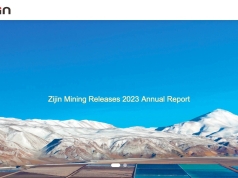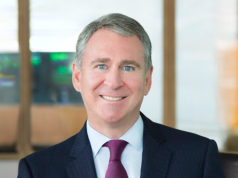Reclaim Finance 2022 Scorecard: 30 Asset Managers Held $468 Billion in 12 Major Oil & Gas Companies, Vanguard, State Street, Allianz & PIMCO with No Fossil Policy
22nd April 2022 | Hong Kong
Reclaim Finance, an NGO dedicated to issues linking finance with social and climate justice, has released a 2022 scorecard ranking of 30 major asset managers on their climate & fossil fuel policies, with 30 asset managers holding $468 billion in 12 major oil & gas companies and with leading asset managers Vanguard, State Street, Allianz & PIMCO with no existing fossil policy. The top investors in 12 major oil & gas companies are BlackRock, Vanguard, State Street, Amundi, JP Morgan Asset Mgmt, Invesco, DWS, UBS Asset Mgmt, LGIM and Insight Investment (BNY Mellon). The 30 asset managers also held more than $82 billion in companies developing new coal projects. The findings were revealed in the scorecard was published one day ahead of the 1-year anniversary of the Glasgow Financial Alliance for Net Zero (GFANZ). Lara Cuvelier, Campaigner at Reclaim Finance: “Is the asset management industry changing its investment practices in line with climate science, reducing investments in coal, oil, or gas expansion? Unfortunately, the answer is an emphatic “no”. Leading asset managers are kicking the can down the road without even asking companies to stop worsening the climate crisis. Let’s be clear: drilling a new oil well or opening a new coal mine is not a normal thing to do in a widespread climate catastrophe. BlackRock most embodies the hypocrisy of too many asset managers: whilst being the biggest member of the NZAM, it still invests in the 11th biggest coal producer worldwide and massive coal expansionist Glencore.” The report is entitled ‘The asset managers fueling climate chaos’ and is endorsed by NGOs urgewald, ReCommon and the Sunrise Project. View Official Statement below | View Report
“ Reclaim Finance Scorecard: 30 Asset Managers Held $468 Billion in 12 Major Oil & Gas Companies “
Scorecard: which asset managers are pushing back on fossil fuel expansion?

Reclaim Finance and three partner NGOs have today released a scorecard ranking 30 major asset managers on their climate commitments (1), with a focus on their approach to the fossil fuel sector (2). The analysis provides new data on their exposure to companies with the biggest fossil fuel expansion plans (3). Of the 30 asset managers that were assessed, 25 are members of the Net Zero Asset Manager Initiative (NZAM). Yet not a single one of them has set the expectation that companies in their portfolios should quit developing new coal, oil or gas projects in line with climate science. NGOs call on asset managers to urgently restrict investments in fossil fuel expansion and to vote against coal, oil, and gas expansionists during the upcoming AGM season.
Big exposure and small-scale action
The 30 asset managers assessed hold more than $82 billion in companies developing new coal projects. The numbers are even more staggering for the oil & gas industry: together, the 30 asset managers hold $468bn in 12 major oil and gas companies with massive upstream expansion plans (4).
The report finds that their policies and investment guidelines, due to vague criteria that leave the door open for the worst polluters, are too flawed for the asset managers to align their entire portfolios with a net zero target.
- 17 asset managers now have a coal policy (5) and 12 have an oil and gas policy. Vanguard, State Street Global Advisors and Allianz’s asset management branch PIMCO are among the biggest firms with no fossil policy at all.
- Among the asset managers with policies, only seven restrict investments in companies developing new coal projects (6), a number that hasn’t changed since last year, and none restrict investments in companies developing new oil and gas supply projects (7).
- More and more policies introduce exceptions to exclusion criteria. For instance, among the seven asset managers that restrict investments in companies developing new coal projects, three plan to introduce undefined exceptions to this rule (8).
Even more worryingly, scrutiny reveals a growing trend of policies and targets that apply only to a small share of the asset managers’ assets.
- None of the asset managers apply their existing fossil fuel restrictions to all their ‘passively’ managed assets, which is particularly concerning considering ‘passive’ investments keep growing and represent 46% of the assets covered by the report. The nine biggest ‘passive’ asset managers within our sample of 30, are also among the biggest holders of companies developing new coal projects. This is due to none of them applying robust coal criteria to their ‘passive’ funds (9).
- Ten of the asset managers have released 2030 decarbonization targets, however, the targets only cover a small share of their portfolios (10).
The deeply disappointing findings revealed in the scorecard are published one day ahead of the one-year anniversary of the Glasgow Financial Alliance for Net Zero (GFANZ). The results are a testament to the alliance’s lack of effectiveness, with prominent members such as Vanguard, Credit Suisse and PIMCO identified among the main laggards.
Lara Cuvelier, campaigner at Reclaim Finance: “Is the asset management industry changing its investment practices in line with climate science, reducing investments in coal, oil, or gas expansion? Unfortunately, the answer is an emphatic “no”. Leading asset managers are kicking the can down the road without even asking companies to stop worsening the climate crisis. Let’s be clear: drilling a new oil well or opening a new coal mine is not a normal thing to do in a widespread climate catastrophe. BlackRock most embodies the hypocrisy of too many asset managers: whilst being the biggest member of the NZAM, it still invests in the 11th biggest coal producer worldwide and massive coal expansionist Glencore.”
Divest or engage: a false debate?
The scorecard also analyzes asset managers’ specific requests and escalation strategies towards fossil fuel companies. Despite being very vocal about virtues of engagement to generate climate impact (11), asset managers’ soft and largely unstructured dialogue with fossil fuel companies failed to stop them from developing new oil and gas fields.
- 25 asset managers state that they engage companies to push for improvements on climate-related issues but none call for a decrease of companies’ overall fossil fuel production or a stop to all new fossil fuel supply projects.
- None of the 30 asset managers have clear and comprehensive demands, whilst only eight publicly ask companies to adopt short-term emission reduction targets (12).
- The absence of specific requests, matched by credible sanctions, makes engagement activities mostly toothless and ineffective. The six European oil and gas majors, which claim to be the best-in-class of their sector in terms of transitioning their activity, are a case in point. A case study in the report describes their massive expansion plans and misalignment with Paris Agreement goals, illustrating the consequences of investors’ failed engagement towards them. BP, for example, will have used up its entire carbon budget to stay below 1.5°C by 2033 – a fact that does not seem to have warranted pushback from asset managers.
Lara Cuvelier, campaigner at Reclaim Finance, comments: “This confirms that the “divestment versus engagement” debate is a big distraction. Asset managers are not engaging companies on the key climate issues when it comes to limiting global warming to 1.5°C. It’s also striking that they are actually sending the opposite signal because they are still buying new debt from fossil fuel developers. Asset managers that provide fresh cash to companies that are ignoring climate science are purely and simply pouring more fuel in the fire.”
The report calls on asset managers to finally adopt robust exclusion and engagement policies to tackle fossil fuel expansion, which in practice means that they should be asking their clients to give up their expansion plans, escalate against those who fail meeting this demand, and be ready to divest from them after a short deadline.
The report is entitled ‘The asset managers fueling climate chaos’ and is endorsed by NGOs urgewald, ReCommon and the Sunrise Project. You can read the full report here.
Reclaim Finance is an NGO affiliated with Friends of the Earth France. It was founded in 2020 and is 100% dedicated to issues linking finance with social and climate justice. In the context of the climate emergency and biodiversity losses, one of Reclaim Finance’s priorities is to accelerate the decarbonization of financial flows. Reclaim Finance exposes the climate impacts of some financial actors, denounces the most harmful practices and puts its expertise at the service of public authorities and financial stakeholders who desire to to bend existing practices to ecological imperatives.
Urgewald is a non-profit environmental and human rights organization. For 25 years, Urgewald has been fighting against environmental destruction and for the rights of people harmed by corporate profit interests.
Re:Common carries out campaigns and investigations againsts corruption and environmental destruction caused by corporations and their financiers.
The Sunrise Project grows social movements to drive the transition from fossil fuels to renewable energy as fast as possible.
Sign Up / Register
Caproasia Users
- Manage $20 million to $3 billion of assets
- Invest $3 million to $300 million
- Advise institutions, billionaires, UHNWs & HNWs
Caproasia Platforms | 11,000 Investors & Advisors
- Caproasia.com
- Caproasia Access
- Caproasia Events
- The Financial Centre | Find Services
- Membership
- Family Office Circle
- Professional Investor Circle
- Investor Relations Network
Monthly Roundtable & Networking
Family Office Programs
The 2025 Investment Day
- March - Hong Kong
- March - Singapore
- July - Hong Kong
- July - Singapore
- Sept- Hong Kong
- Sept - Singapore
- Oct- Hong Kong
- Nov - Singapore
- Visit: The Investment Day | Register: Click here
Caproasia Summits
- The Institutional Investor Summit
- The Investment / Alternatives Summit
- The Private Wealth Summit
- The Family Office Summit
- The CEO & Entrepreneur Summit
- The Capital Markets Summit
- The ESG / Sustainable Investment Summit


































